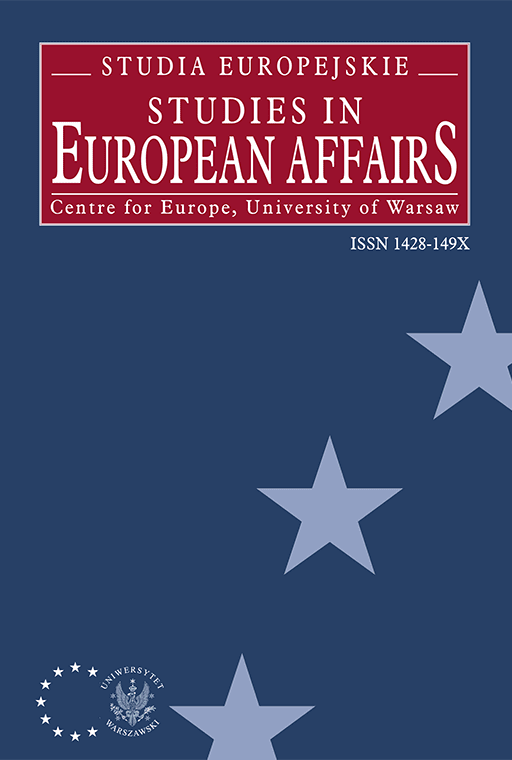
ISSUE: 3/2007
- Volume 43
- Number 3
- 2007
Subscribe NEWSLETTER
Studia Europejskie –
Studies in European Affairs
ISSN: 1428-149X
e-ISSN: 2719-3780
License
Articles published in the journal are under a Creative Commons Attribution – Non Commercial – No Derivatives 4.0 International License
Romantyzm i duch Europy
Romanticism and the spirit of Europe
Abstract
The aim of the article is to highlight the importance of romanticism in debate concerning political and spiritual identity of Europe. I’m arguing that comprehensive understanding of Europe requires considering romanticism. Otherwise our understanding is not only incomplete, but seriously impoverished. Romanticism was very peculiar spiritual formation that roused with unknown intensity the values of creative expression, the respect for individual genius and common personality, consciousness of unfailing profundity of human life, the significance of reverie and yearning, the role of subversive activism, the authority of ironic wisdom, the strength of outstanding hopes or a belief in final unity of worlds. European poetry, its unique charm and power, springs from romantic energy; from peculiar humanism with its spiritual and not only reasonable purview. It’s neither easy nor effortless to present romantic temper in terms of institutions and procedures comprehensible to European rationalists and citizens of different nations. The conscious sublimation, which I circumscribed in this article as a “controlled romantisation”, as well as decisive break with simplistic understanding of what is romantic spirit, will facilitate a judicious confrontation with European anxiety and troublesome deficit of hope. I believe this can help in finding an adequate strategy for European self-definition, the post-modern political community – vulnerable yet capable of action.
Language: Polish
Pages: 9-25
How to Cite:
Harvard
Rakusa-Suszczewski, M. (2007) "Romantyzm i duch Europy". Studia Europejskie – Studies in European Affairs, 3/2007, pp. 9-25.